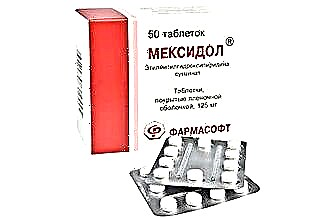 Is it possible to bathe a child with a cough and a runny nose without fever? According to experts, water procedures cannot harm the health of a small patient. But immediately after taking a bath, the risk of hypothermia of the body increases and, as a result, a decrease in immunity.
Is it possible to bathe a child with a cough and a runny nose without fever? According to experts, water procedures cannot harm the health of a small patient. But immediately after taking a bath, the risk of hypothermia of the body increases and, as a result, a decrease in immunity.
It is the decrease in the body's resistance caused by overheating and hypothermia that can provoke an exacerbation of cough and runny nose in a child. From the article you will learn in what situations you can resort to water procedures, and when it is better to refuse bathing.
The opinion of pediatricians
Before answering the question of whether it is possible to bathe babies with a cough and a runny nose, you should understand what the symptoms are and why they appear. Cough and runny nose are pathological manifestations that most often indicate inflammation of the upper and lower respiratory system. To assess the likelihood of negative consequences after swimming, you need to take into account several important factors at once.
Cause of cough and runny nose
It should be understood that rhinitis and cough do not always appear with a cold. Unpleasant symptoms can be the result of an allergic reaction to complementary foods, medications, animal dander, washing powder, etc. In infants, cough syndrome often accompanies the teething process. During this period, the child's salivation increases, which causes irritation of the cough receptors in the throat. In addition, cough and runny nose can be the result of the development of pathologies in the gastrointestinal tract, cardiovascular and endocrine systems. Therefore, before washing the child, take him to the pediatrician and for sure determine the reason for the deterioration in his health.
General condition of the child
If a small child has other symptoms of a respiratory illness in addition to rhinitis and cough, it is better to refrain from water procedures for several days. Some of the most common signs of developing a cold in children include:
- headache;
- malaise;
- lack of appetite;
- excessive sweating;
- chills.
Experts categorically do not recommend washing small patients during periods of exacerbation of infectious diseases. The slightest hypothermia can provoke the multiplication of pathogenic viruses and bacteria, which will subsequently lead to complications - bronchitis, tonsillitis, nasopharyngitis, etc.
Age
Infants are more likely to suffer from overheating and hypothermia, since their thermoregulatory system is not working perfectly. A sharp change in temperature in the room sometimes entails local hypothermia of the ENT organs, which negatively affects local immunity. If the cause of the baby's cough and rhinitis is a cold, it is not recommended to perform water procedures in the first few days after the first signs of the disease appear.
Ignoring precautions in 6 out of 10 cases leads to the development of bronchitis, conjunctivitis and pneumonia.
Children over 2-3 years old can be washed, but only at the stage of resolving inflammatory reactions in the respiratory tract. To prevent hypothermia, the water temperature should be made several degrees higher than during the "pre-sick" period.
Washing and bathing are not the same
Very often, even after receiving valuable recommendations from a pediatrician regarding the treatment and care of a sick child, parents make mistakes. Few people know that there are fundamental differences between the concepts of “washing” and “bathing”. To be clear, consider the definitions of the mentioned terms in more detail:
"Wash" - clean it from dirt with a liquid (water) in a short period of time. In other words, washing can be called a banal shower. According to experts, it is necessary to wash children in any condition, even during periods of exacerbation of acute respiratory viral infections. The fact is that during a fever, along with sweat secretions through the pores on the skin, metabolites of pathogenic viruses and bacteria are excreted from the body.
If you do not cleanse the skin from dirt in time, this will subsequently lead to the appearance of prickly heat, acne and boils.
 During periods of severe deterioration in the child's well-being, it is recommended to wipe the body with a towel soaked in warm water. Alternatively, you can use hypoallergenic wet wipes.
During periods of severe deterioration in the child's well-being, it is recommended to wipe the body with a towel soaked in warm water. Alternatively, you can use hypoallergenic wet wipes.
"Bathing" - washing the body for a long period of time. Generally, bathing involves submerging in a warm water bath and splashing the baby for at least 10-15 minutes. It is recommended to swim only if the small patient does not have fever and signs of hyperthermia. In addition, after water procedures, it is necessary to create conditions that prevent hypothermia and deterioration of the baby's well-being.
Precautionary measures
As soon as the child's temperature returns to normal, even if cough and rhinitis is still present, allow him to shower or take a dip in the bathroom. To prevent overheating or hypothermia, do not forget to follow several important rules while performing water procedures:
- the water temperature should be 2-3 degrees higher than usual (the optimal temperature is 36-38 ° C);
- before undressing the child, warm up the bathroom to 25 ° C and exclude "walking" drafts in the house;
- the time spent in the bath for the first few times after the illness should not exceed 5-7 minutes;
- to speed up the separation of sputum from the mucous membranes of the bronchi and nasal passages, add steamed rosemary or eucalyptus leaves to the water;
- Immediately after water procedures, wipe the child's body dry and dress him in warm, preferably flannel, clothing.
Important! After taking a shower or bath, you must not go outside for at least 2 hours, as this can lead to hypothermia.
During bathing in the bathroom, the air humidity reaches 75-80%. According to practical observations, inhaling moist air only speeds up the healing process. Water molecules condense on the inner surface of the nasopharynx, thereby reducing the viscosity of the mucus. Therefore, immediately after the hygiene procedures, the baby may have a runny nose or cough. However, this indicates not a deterioration in health, but about the evacuation of sputum from the respiratory tract.
Bathing rules for various diseases
As already mentioned, a cough can be a consequence of the development of several types of respiratory diseases at once. Therefore, before washing a small child, you need to make sure that there are no serious pathologies and disturbances in the work of the endocrine and cardiovascular systems. To prevent complications, during hygiene procedures, you need to pay attention to the following rules:
| Disease type | Typical symptoms | Bathing rules |
|---|---|---|
| ARVI | malaise headaches cough rhinitis | You can swim only 4-5 days after infection, the optimal water temperature is 36-37 ° C, it is advisable to add essential oils of eucalyptus, pine needles and sea salt to the water |
| gastroesophageal reflux | cough in the morning spitting up food sore throat | washing is carried out as usual, it is recommended to add a decoction of medicinal chamomile to the water |
| bronchitis and tracheitis | wheezing when breathing spastic cough difficulty breathing | you can only take a shower and only for hygienic purposes |
| nasopharyngitis | barking cough sore throat severe runny nose loss of appetite | bathing is allowed only during the recovery period, the duration of water procedures should not exceed 5 minutes |
| pneumonia | persistent cough shortness of breath low-grade fever acute chest pain | at the stage of exacerbation of the disease, water procedures are replaced with wet rubdowns, you can swim only during the recovery period |
It is recommended to put the baby to bed immediately after taking a shower to prevent hypothermia. It is recommended to preliminarily lubricate the feet and chest with a warming ointment. However, it should be borne in mind that the use of drugs of reflex action is allowed only if the child does not have a high fever.
Contraindications
 Doctors emphasize the need for hygiene procedures, since babies sweat a lot during the period of illness. Together with sweat secretions, metabolites of infectious agents and drugs are excreted from the body, which must be removed. Bathing prevents dehydration and promotes tissue oxygenation. However, experts recommend refraining from carrying out hygiene measures in the following cases:
Doctors emphasize the need for hygiene procedures, since babies sweat a lot during the period of illness. Together with sweat secretions, metabolites of infectious agents and drugs are excreted from the body, which must be removed. Bathing prevents dehydration and promotes tissue oxygenation. However, experts recommend refraining from carrying out hygiene measures in the following cases:
- period of exacerbation of acute respiratory viral infections (the first 2-3 days);
- febrile fever (temperature over 38 ° C);
- poor physical health (malaise, weakness, nausea).
In addition, it is undesirable to shower more than 3 times a week if you have a severe cough or runny nose. The slightest hypothermia will lead to recurrence of inflammation and, as a result, re-development of infection in the respiratory tract.
Conclusion
Water procedures have a beneficial effect on the well-being of children, but they should be bathed during the period of resolution of inflammation in the respiratory tract. In the absence of temperature, it is recommended to take a shower and a bath at least 3-4 times a week. Hygiene procedures help cleanse your baby's skin of impurities and perspiration, which may contain toxins, bacteria and other substances.
To speed up the healing process, pediatricians advise adding decoctions of medicinal herbs - eucalyptus, wild rosemary, chamomile, nettle, etc. to the bathing water. They contain immunostimulating components that have a beneficial effect on tissue reactivity and stimulate the healing of the mucous membrane in the nasopharynx.



